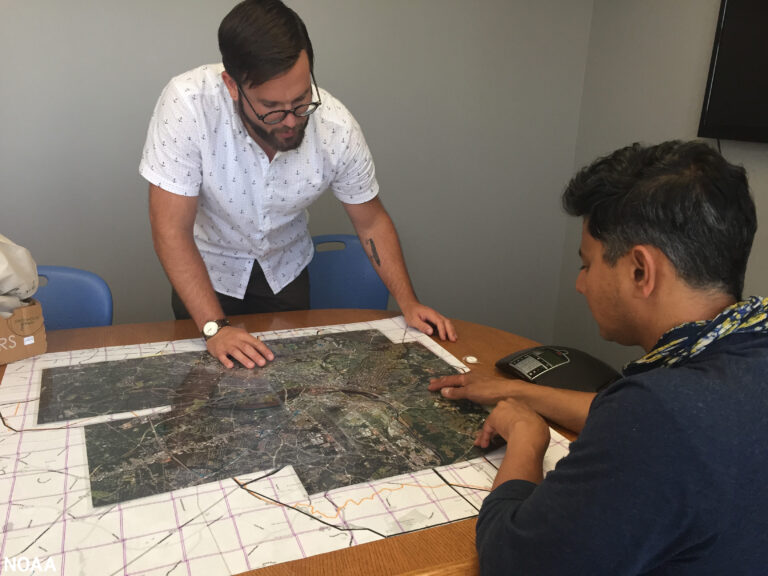NOAA, in partnership with the US Census Bureau, has launched a new product development sprint project with the aim of creating data-driven tools that will help decision makers tackle the climate crisis.
As part of the project teams of participants are challenged to build world-class applications and technologies that make it easy for local governments, particularly in underserved regions most vulnerable to the impacts of climate change, to quickly identify and integrate relevant federal climate datasets with their own local information.
Such tools will support the development of climate resilience plans to help communities nationwide take action to better prepare for and respond to the increasing impacts of the climate crisis.
“NOAA’s data and information is the bedrock of climate-smart decision making in the face of an urgent climate crisis,” said Rick Spinrad, NOAA administrator. “We are thrilled to work with the Census Bureau to help all of our nation’s communities use data from NOAA and other federal agencies to prepare for impacts and build back better.”
The 12-week sprint launches on August 5, 2021, and participants will be eligible to compete for US$50,000 in prize money from NOAA, plus additional prize money from the Census Bureau. Competition winners will be announced in the winter.
“Underserved communities may not have the budgets and resources to produce their own tailored climate information,” added Tony LaVoi, NOAA’s chief data officer and executive champion for the NOAA sprint. “They need affordable tools with data at the ready that can be easily customized in maps, visuals, and text to help them understand, communicate about, and address their local climate-related risks and opportunities.”
The challenge is part of The Opportunity Project, led by the Census Bureau, that brings together government, industry, universities, non-profits, and communities for 12-week product development sprints. Government agencies first identify urgent issues facing Americans. Then teams of entrepreneurs and innovators use federal open data to create new technologies that provide solutions to those problems. Along the way, the agencies, product advisors, and users who directly experience those issues give valuable input to ensure the technologies developed directly target community needs.



